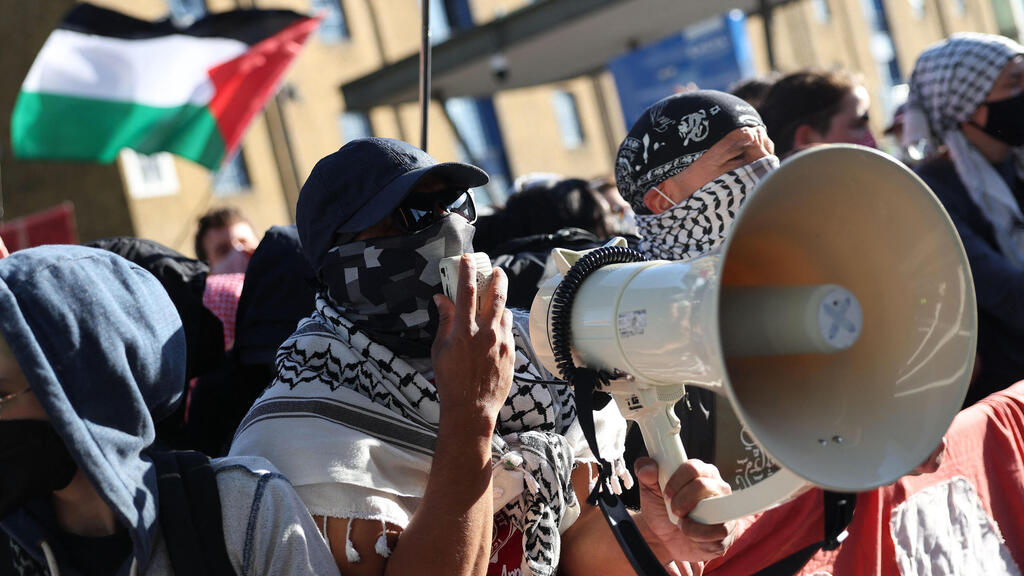“October 7 may again serve as a significant date for terrorist organizations,” the NSC said, noting that around this time, efforts to carry out attacks against Israeli and Jewish targets overseas may intensify.
1 View gallery


Pro-Palestinian protest in London
(Photo: Toby Shepheard / AFP)
Officials in Jerusalem believe that the threat stems largely from Iran and Hamas, which have reportedly expanded their operations to plan and execute attacks beyond Israel’s borders. The NSC stated that dozens of plots have been foiled in recent months, but the trend of violent incidents, including physical assaults, antisemitic threats, and incitement on social media, is on the rise.
“With the war ongoing and the terror threat growing, we are witnessing an escalation in antisemitic violence and provocations by anti-Israel elements,” the NSC said. “This trend may inspire extremists to carry out attacks against Israelis or Jews abroad.”
Pro-Palestinian protest in Greece as ship carrying Israeli tourists arrives
(Video: Reuters)


The NSC specifically warned of kidnapping and luring attempts targeting Israelis, urging travelers to be cautious when approached by unfamiliar individuals—particularly through digital channels or overseas business contacts.
Iran remains the primary driver of global anti-Israel terrorism, according to the NSC, motivated in part by the damage it sustained during Operation Shield and Arrow and a growing desire for revenge. Hamas, too, is reportedly working to build infrastructure for attacks beyond the Gaza Strip.
Other hotspots flagged in the warning include areas where global jihadist elements are active, particularly parts of Africa and Asia. The Sinai Peninsula remains under a level-4 travel warning—Israel’s highest threat level—due to the risk of terror attacks, and the NSC strongly advises against visiting the area, especially its beaches.
The NSC urged all Israelis traveling abroad to review the latest travel advisories and follow safety recommendations based on each country’s risk level.
Travelers are also advised to:
Avoid displaying Israeli or Jewish symbols
Refrain from speaking Hebrew in public
Avoid large, unsecured public gatherings
Stay away from isolated sites lacking security
Keep emergency contact numbers for local security authorities on hand
Remain vigilant throughout their stay
Steer clear of protests or demonstrations
Avoid discussing military service or security affiliations with strangers
The NSC also stressed the danger of social media posts that indicate Israeli security service ties, warning that such content could mark individuals as targets. “We advise against posting any content that suggests involvement in the security services or operational activities, including real-time location updates,” the statement read.
Countries where Israelis are at high personal risk include Iraq, Yemen, Iran, Syria, Lebanon, Saudi Arabia, Bangladesh, Somalia, Pakistan, Afghanistan, Libya, Algeria, Jordan, Egypt, and Turkey.

